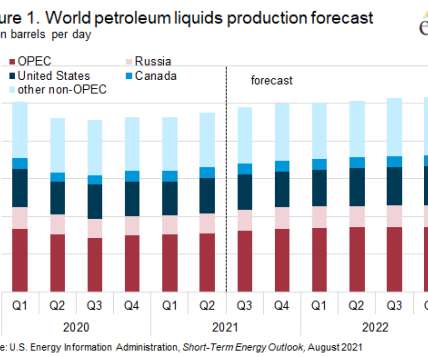$10-Trillion Investment Needed To Avoid Massive Oil Price Spike Says OPEC
Green Car Congress
DECEMBER 30, 2015
The OPEC published its World Oil Outlook 2015 (WOO) in late December, which struck a much more pessimistic note on the state of oil markets than in the past. On the one hand, OPEC does not see oil prices returning to triple-digit territory within the next 25 years, a strikingly bearish conclusion. mb/d for 2035 to 2040.





















Let's personalize your content